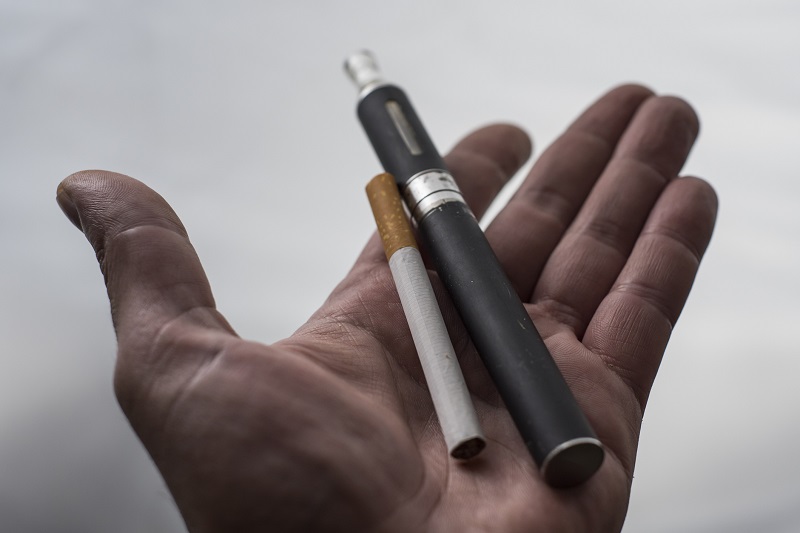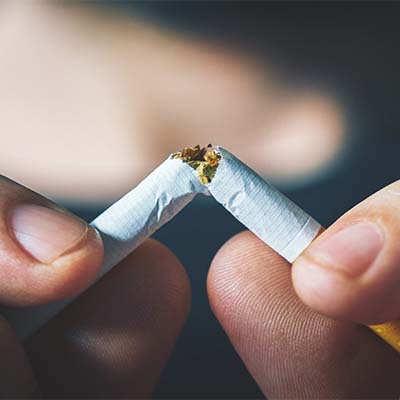Smoking vs. Vaping Weed: Know the Facts

April 10, 2024
How marijuana affects you depends, in part, on a few factors:
- How much you use
- Frequency of use
- If you take it with alcohol or other drugs
- Concentration of tetrahydrocannabinol (THC: a psychoactive compound that causes a “high”) and cannabidiol (CBD: a psychoactive compound that doesn’t cause a “high”)
The long-term impacts of cannabis are still being researched, but so far, studies are indicating that cannabis use can lead to memory, learning and mental health problems, especially in children and teenagers. Some people can become dependent on cannabis or experience withdrawal symptoms, such as low appetite and mood swings.
Some side effects depend on the method by which you use cannabis products:
Smoking Weed
Smoking marijuana—be it via joints, blunts or bongs—puts you at risk of developing breathing problems, chronic coughs and lung infections, much like smoking tobacco does. That’s because cannabis smoke contains many of the same harmful and potentially cancer-causing chemicals as tobacco smoke.
“You're inhaling chemicals that have been burned, and then inhaling toxins, which will irritate your lungs and cause damage,” says Nadeem Ali, M.D., a pulmonologist at Hackensack University Medical Center.
Vaping Marijuana
Vaping involves using a vape pen or other battery-operated device to heat oil, herb or concentrated forms of cannabis into an aerosol that is then inhaled into the lungs.
“In theory, vaping was supposed to be safer than smoking,” Dr. Ali says. “You're heating instead of burning, so there’s no combustion involved.”
But in 2019, researchers identified a growing number of illnesses and deaths from EVALI, or “e-cigarette or vaping use-associated lung injury.” EVALI has been linked to the use of vitamin E acetate in some vaping products containing THC oil.
In addition, the high levels of THC in cannabis products—especially oils and concentrates used in vaping—increase the risk of mental health problems. A study found that people who use cannabis with a THC potency higher than 15% are three times more likely to experience psychosis. Research has also shown that vaping CBD oil can lead to more severe lung damage than vaping nicotine.
Safer Ways to Consume Cannabis
If you want to vape, a potentially safer option is edibles—food or drinks infused with cannabis, such as gummy candies, brownies, tea or cola.
“If you're going to have cannabis, it'll be safer for your lung health to have edibles,” Dr. Ali says.
But note: Edibles can take longer to produce that “high” feeling, which can lead to a higher risk of using too much of them. There’s also the risk that children or pets will mistake edibles for regular food and become seriously ill after eating them.
Other oral products like tinctures (concentrated oils) and capsules are good options, as well as suppositories or topical products like creams and patches, especially for medicinal use.
The best way to reduce your risk of harm is to not use cannabis. But if you do, start with a small amount to test its effect on you and buy from a reputable source.
Next Steps & Resources
- Meet our source: Nadeem Ali, M.D.
- To make an appointment with Dr. Ali or a pulmonologist near you, call 800-822-8905 or visit our website.
- Learn more about pulmonology at Hackensack Meridian Health.
The material provided through HealthU is intended to be used as general information only and should not replace the advice of your physician. Always consult your physician for individual care.






